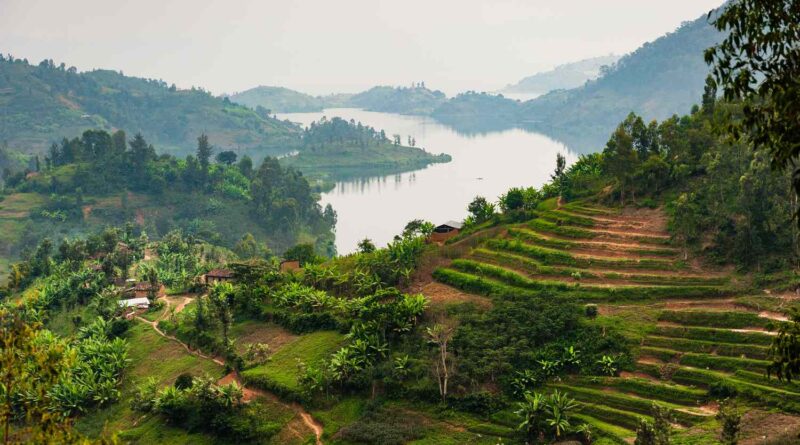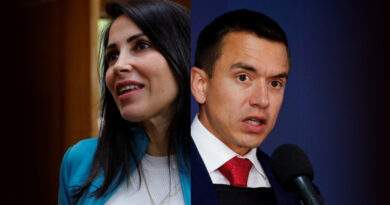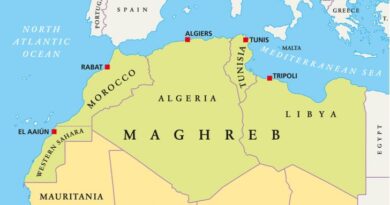Rwanda, the new Fachoda complex between France and Great Britain
JAYRO SANCHEZ
The Paris Criminal Court sentenced Rwandan gynecologist Sosthene Munyemana, better known among his compatriots as the Butcher of Tumba, to 20 years in prison on December 24 for his participation in the mass murders carried out in his native country against the Tutsi ethnic minority. between the spring and summer of 1994.
After mulling over the allegations for more than half a day, the jury decided he was guilty of committing genocide and crimes against humanity, as well as participating in a conspiracy to carry out those same crimes. The defendant's lawyers assured that they were willing to appeal the sentence.
According to the president of the Tribunal, Marc Sommerer, Munyemana was part of the group that "planned, organized and directed the daily genocide of the Tutsis in Tumba." The people called to testify stated that the doctor "had signed a letter of support for the genocidal provisional regime that was in power in the period between the death of President Juvénal Habyarimana," on April 6, 1994, "and his defeat at beginning of July".
The jury considers that there is solid evidence about Munyemana's personal friendship with Prime Minister Jean Kambanda, who was sentenced to life imprisonment by the International Criminal Tribunal for Rwanda in 1998 for being one of those responsible for carrying out the "policy" of ethnic cleansing, and about his involvement in the creation of “roadblocks and patrols” that captured and killed numerous members of the Rwandan minority ethnic group.
It has also concluded that "he was a key holder in the local administrative office" of the city of Butare, "where dozens of wounded, helpless and starving Tutsis were imprisoned before being killed."
Impunity?
Two months after the fall of the Cabinet responsible for the massacres, the gynecologist fled to France along with his wife and three daughters. Despite the fact that other Rwandan expatriates residing in the European country filed a complaint against him in October 1995, Munyemana remained free and developed a successful professional career in the French medical services until his recent retirement.
He is the sixth war criminal implicated in the Rwandan genocide to be tried in France, and the first whom French prosecutors began investigating. It took the courts 28 years to rule against him because the second government of François Mitterrand was, in part, responsible for the events that occurred in that part of Africa in 1994.
Both Rwanda and its southern neighbor, Burundi, have suffered confrontation between the two main ethnic groups of their population, the Tutsi and the Hutu, over the hypothetical use that they wanted to give to the scarce land in the region. In principle, the first sought to graze their cattle there. The second planned to cultivate more plots of manioc and corn in them.
The consequences of colonialism
Then, with the arrival of European colonial powers to the continent, the matter became even more complicated. The officials sent to those territories by Berlin and Brussels used the Tutsis, the traditional rulers of the area, to control them. But, when they began to fight for independence in the mid-20th century, they did not hesitate to throw their former Hutu "servants" against them.
Rwanda and Burundi only declared themselves states with full sovereignty in 1962. The government of the former fell into Hutu hands, and that of the latter remained in the hands of the Tutsis. In the following decades, both ethnic groups would murder large groups of their rivals in a succession of revolts, coups d'état and guerrilla actions that would make it difficult to establish democratic political systems and the development of any type of economic prosperity in the two countries.
In 1973, part of the Rwandan Hutu supported a rebellion led by the then Minister of Defense and Commander in Chief of the Army, General Habyarimana. He created a dictatorship that would keep him in the presidency of the State until April 1994, when the most chauvinistic of his former supporters decided to put an end to him because he had negotiated an agreement with the main opposition organization, the Rwandan Patriotic Front ( FPR), to share power.
Four years earlier, Rwandan exiles, who had joined Yoweri Museveni's militias in Uganda with the aim of overthrowing Milton Obote, re-entered Rwanda and wrested control of its northern territories from Habyarimana, who held on only to the presidency thanks to the intervention of a company of French paratroopers that stopped the RPF offensive.
A peace not achieved
The signing of the Arusha Accords by the two sides between 1992 and 1993 was countered by the assassinations of Rwanda's main leaders in 1994, which were carried out by the same group of radical Hutus that organized the genocide of Tutsis and Hutus. moderate that same summer.
En of the book Ebano, Polish journalist Ryszard Kapuściński explains that “there are disparate estimates of the number of victims. Some talk about half a million, others about one. "No one will ever get exact figures."
What the current Government of Rwanda seems to be clear about is France's responsibility for the massacres. In 2021, it commissioned several researchers to analyze the role that the European State had had in them and they issued the report A foreseeable genocide: The role of the French Government in connection with the genocide against the Tutsis in Rwanda.
In it, they state the following: «It is our conclusion that the French Government bears a significant responsibility for allowing a foreseeable genocide. For many years, he […] he supported the corrupt and murderous regime of Rwandan President Juvénal Habyarimana. "The French authorities armed, advised, trained, equipped and protected the Rwandan Government without paying attention to Habyarimana's policies, his commitment to the dehumanization and, ultimately, the destruction and death of Tutsis in Rwanda." .
«They did it to promote France's own interests; in particular, to strengthen and expand her power and influence in Africa. And this despite the constant and increasing evidence that a genocide was foreseeable," they say.
However, it did not take long for both the planners and executors of the murders to try to flee Rwanda. In July 1994, the RPF took over the entire country and formed a new Executive with Tutsis and moderate Hutus who, in theory, were to achieve reconciliation and persecute and bring to justice those who had participated in the genocide.
Change everything so that nothing changes
The Hutu Pasteur Bizimungu was named president of the Republic, and the leader of the RPF, the Tutsi Paul Kagame, vice president. The latter replaced the former in his position in 2000, and continues to win the elections that have been held in the country since 2003.
Despite this, several international actors such as the European Union (EU) criticize the irregularities committed in the various elections that have been organized since the RPF representatives came to power.
Amnesty International's latest annual report on the state of human rights in the world states that Rwandan "authorities" continued to harass, intimidate, persecute and illegally detain bloggers and journalists" critical of the Kagame regime.
It signed an agreement with the United Kingdom that will allow London to deport all illegal immigrants who reach its shores to Rwanda. The Council of Europe committee for the prevention of torture and inhuman or degrading treatment or punishment published a report last Thursday in which he warned that migrants who are expelled could suffer torture and degrading treatment in the African country.
In fact, the British Home Office has recently approved the asylum requests of four Rwandan citizens who claim to be fleeing the persecution to which they are subjected by their own Government. However, Prime Minister Rishi Sunak intends to push forward his legislative project against illegal immigration at all costs.
The new Fachoda complex
The main European states that colonized Africa, France and Great Britain, still want to maintain some kind of influence on the continent. The former has sheltered for decades several Rwandan war criminals involved in the genocide against Tutsis and moderate Hutus in 1994, and the latter maintains good relations with President Kagame despite the fact that his regime has been repeatedly accused of not respecting human rights.
At the end of the 1994th century, Paris believed it had the right to protect Habyarimana and his allies to keep the Francophonie united, that imaginary community made up of all peoples of French language and culture. And today, it continues to provide shelter to some of the individuals who led the XNUMX massacres while trying to make the world forget its role in them.
Meanwhile, Britain has replaced France thanks to its long-standing friendship with former Anglophone guerrillas descended from Rwandan Tutsi exiles, many of whom served under Museveni in Uganda, a former British colony.
In the 19th century, when Paris and London expanded their empires across the African continent, the governments of both countries sought a way to unite their colonial possessions in straight lines. The French wanted to build theirs from east to west, from Dakar to Djibouti. And the British from north to south, from Cairo to Cape Town.
The converging point of the two lines was a small fishing village located on the banks of the Nile River: Fachoda. The Europeans of the time thought that whoever took it would dominate Africa. For this reason, France and the United Kingdom sent military expeditions to take control of it.
In the end, the former resigned from Fachoda, although feeling very aggrieved. The conflict marked the beginning of a continental-scale competition between both powers, and it has never ended despite the fact that the African territories have been transformed into states with their own supposed sovereignty. Will Rwanda be the new setting for that complex that has never quite died?













